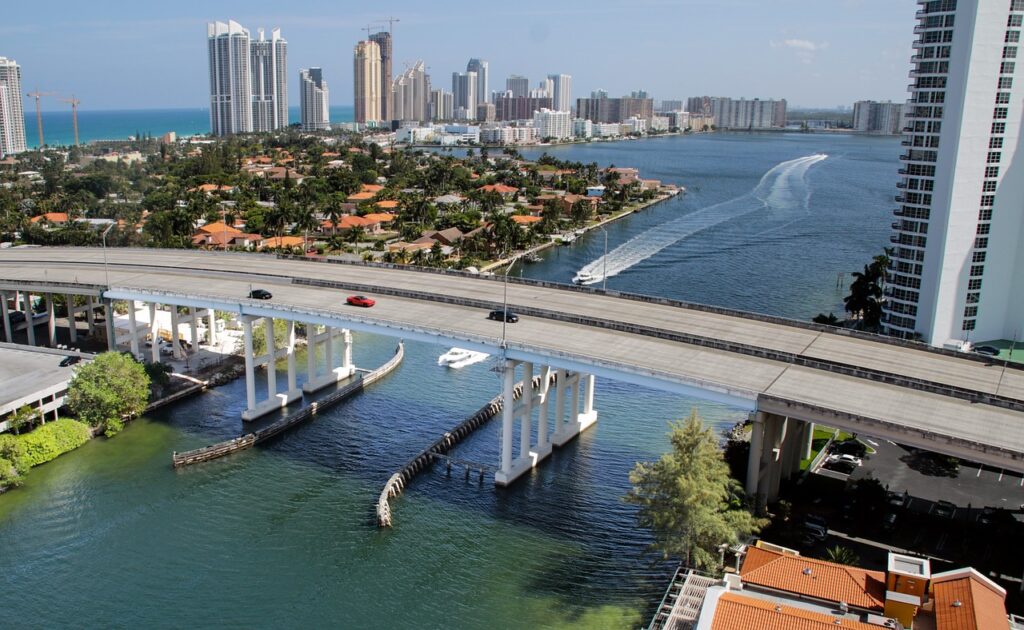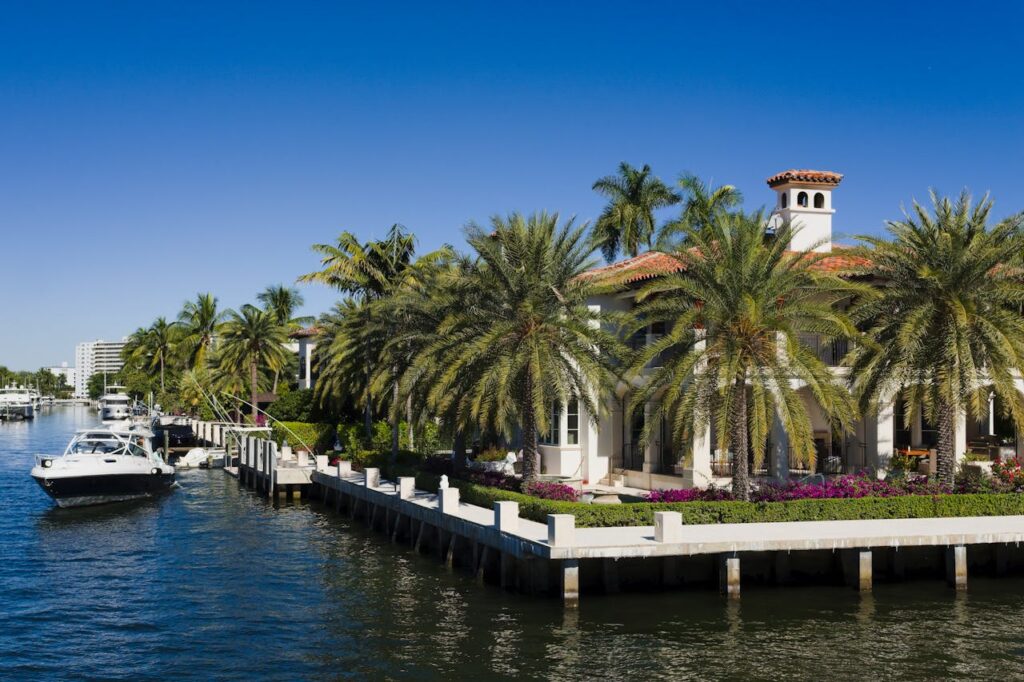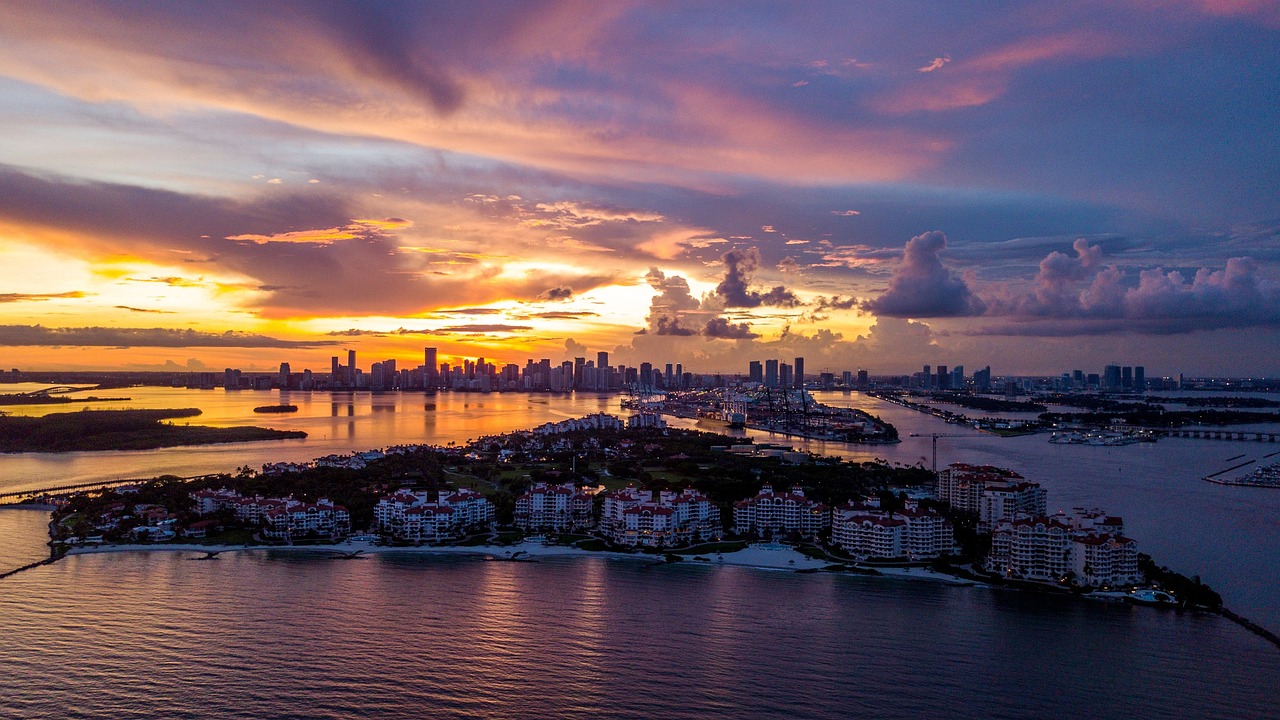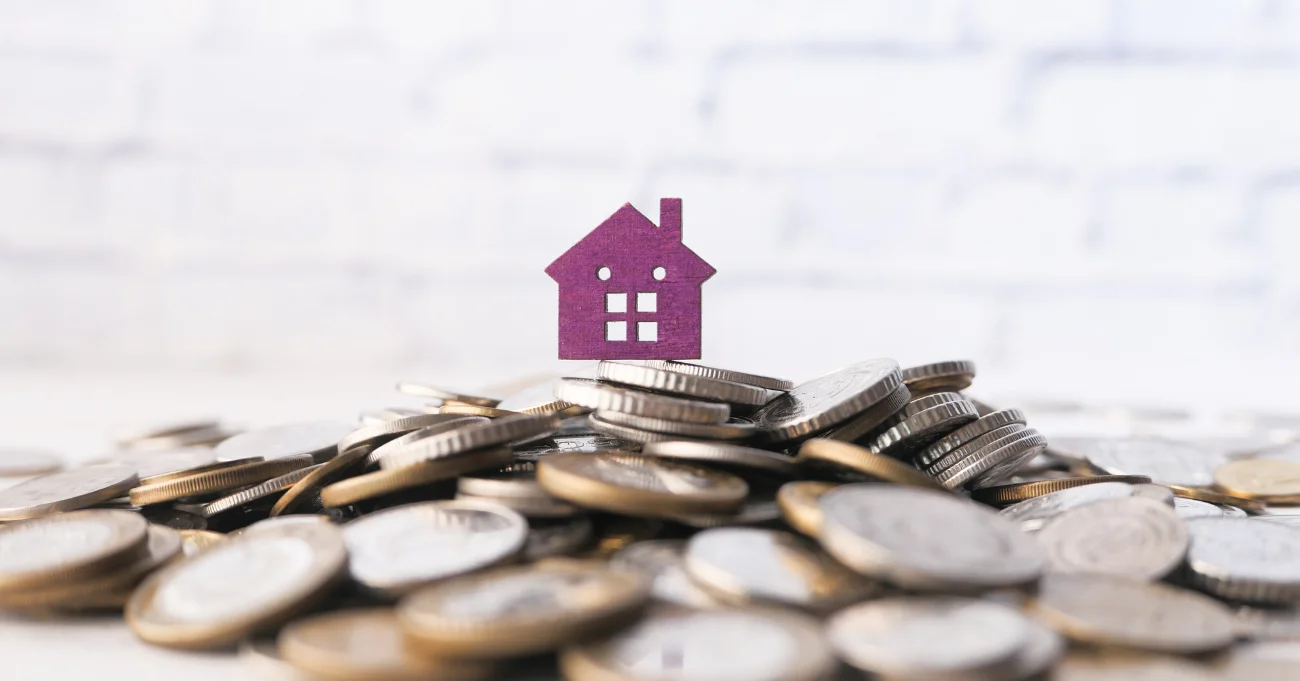In 2022, conventional loans made up 53.2% of all mortgage originations, making them the most popular choice for homebuyers across the country, and Florida is no exception to that. A conventional loan Florida is a great loan option if you’re looking to secure competitive interest rates and lower long-term costs compared to government-backed loans, like FHA loans. But there’s a slight catch – conventional loans can be tricky to qualify for if you have less-than-perfect credit or have non-traditional income streams.
This guide will explore the key things homebuyers need to know about getting a conventional loan Florida – from loan limits and requirements to benefits and the approval process. Keep reading to find out if a conventional loan is right for you!
What Is a Conventional Mortgage Loan?
A conventional mortgage loan is a type of home loan that’s not backed by a government agency, but is still required to meet the lending standards set by the Consumer Financial Protection Bureau (CFPB). These requirements make conventional loans qualified mortgage (QM) loans, meaning they can be bought and sold by Fannie Mae and Freddie Mac on the secondary mortgage market.
For most people with traditional jobs and strong credit scores, conventional mortgage loans provide flexibility with competitive interest rates and favorable loan terms. However, for those who don’t fit the traditional mold, it can be quite difficult to qualify for a conventional loan because of the strict qualification criteria. If this sounds like you, consider non-QM (non-qualified mortgage) loans for flexible, tailored loan solutions.
What You Need to Know About Florida Conventional Loans
In April of 2024, Florida’s population hit a whopping 23 million residents and counting. Between 2022 to 2023, four Florida counties were on the top five fastest-growing metropolitan area list. The Sunshine State’s population shows no signs of slowing down with a projected 25.5 million residents by 2035 – an additional 2.5 million people in just over 10 years. Pair that with an 18% increase in the median sale price of a Florida home since August 2021, making it an ideal place to buy a home. Whether you’re looking for a home to raise your family in, a vacation home, or an investment property, a Florida conventional loan can help you make that happen.

Conventional Loan Florida Limits
For a loan to be considered conventional, it must follow certain lending standards and the loan limit is no exception to this. Conforming loan limits across the U.S. are set by the Federal Housing Finance Agency (FHFA) and are adjusted annually to reflect changes in the housing market.
In 2024, the conforming loan limit for a single-family home is $766,550 in most counties in Florida except Monroe county, where the conforming loan limit is $929,200. Loans amounts that fall under these limits can be bought and sold by Fannie Mae or Freddie Mac, which usually means better interest rates and terms for borrowers.
If you live in a more expensive area or plan to buy a luxury home that exceeds this limit, you’ll have to apply for a jumbo loan instead. Jumbo loans are designed for higher-priced properties, but they tend to come with stricter qualification requirements due to the larger loan amount.
Conventional Loan Florida Requirements
When you apply for a conventional loan Florida, you can generally expect the following requirements:
- Minimum FICO score of 620+
- Down payment of 3-20%
- Debt-to-income (DTI) ratio of 43% or lower
- Proof of income documentation (e.g. W2s, pay stubs, tax returns, bank statements)
- Proof of asset documentation (e.g. savings, retirement funds)
- Private mortgage insurance (PMI) if the down payment is less than 20%
Keep in mind that these requirements may vary depending on the lender and your financial profile.
Conventional Loan Florida Interest Rates
As of September 2024, conventional loan rates hover around 5-7%. The exact rate you’re offered will vary on several factors like your credit score and down payment. You’re more likely to qualify for lower interest rates if you have a high credit score and larger down payment.
To get a clearer picture of the interest rate you can expect, it’s a good idea to request pre-approvals from lenders you’re interested in working with. Pre-approval not only shows you what rate you can qualify for but also shows sellers that you’re a serious buyer.
Conventional Loan Florida Down Payment
Conventional loan down payments are typically quite flexible, ranging from as low as 3% to 20% or more of the home’s purchase price. The exact amount required depends on your credit score, income, and the lender’s loan terms. It’s important to note that a larger down payment of 20% or more can help you avoid paying private mortgage insurance (PMI), lower your monthly payments, and potentially qualify for better interest rates. But for those who are first-time homebuyers or have a high credit score, a smaller down payment option like 3-5% can make conventional loans more accessible.

Conventional Loan Florida Closing Costs and Fees
Closing costs and fees for conventional loans usually range from 2-5% of the loan amount and cover all of the expenses related to finalizing your mortgage. These costs can include:
- Origination fees
- Appraisal fees
- Title insurance
- Credit report fees
- Escrow deposits for property taxes and homeowner’s insurance
- Attorney fees (if applicable)
- Recording fees (if applicable)
These costs are paid on closing day, and while some may be negotiable, they’re important to factor in when planning your budget.
Benefits of Conventional Loans
- Widely available
- Private mortgage insurance (PMI) can be removed once you reach 20% equity
- A variety of terms are available, such as different lengths (15, 20, 30 years) and fixed or adjustable-rate options
- Conventional loans do not require an upfront insurance premium (government-backed loans do)
- Lower rates available for those with higher credit scores and down payments
- Can be used to finance primary residences, second homes, or investment properties
Drawbacks of Conventional Loans
- Minimum credit score of 620 or higher required
- If you have a lower credit score, you may be required to put down as much as 20%
- May be difficult to qualify for those with DTI ratios of over 43%
- PMI required if you put down less than 20%
Conventional Loan Florida Alternatives
For those who can’t qualify for a conventional loan, don’t worry – you have options. Depending on your situation, there could be one loan type out there that’s better suited for you than the others. Here are some alternatives to consider:
- FHA Loan: A government-backed mortgage designed for those with lower credit scores or smaller down payments, requiring as little as 3.5% down.
- VA Loan: A government-backed mortgage for active-duty military members, veterans, and eligible spouses, offering benefits like zero down payment and no private mortgage insurance.
- Bank Statement Loan: A type of non-QM loan for self-employed individuals or those with non-traditional income to qualify for a mortgage based on bank deposits rather than traditional income documentation like W2s, pay stubs, and tax returns.
- P&L (Profit & Loss Statement) Loan: A type of non-QM loan that uses a business owner’s CPA-prepared profit and loss statements to verify income and qualify for a mortgage.
- DSCR (Debt-Service Coverage Ratio) Loan: A type of non-QM loan that’s designed for real estate investors and is based on the income generated by the property rather than the borrower’s personal income.

How to Get a Conventional Loan Florida
Conventional Loan Florida Pre-Approval
Getting a pre-approval for a conventional loan is an important step in the homebuying process since it helps you understand how much you can borrow and gives you a clearer picture of your budget. Pre-approval shows sellers that you’re a serious buyer, making your offer more competitive in a hot market. On top of that, you can lock in an interest rate and potentially speed up the loan approval process once you find your dream home. At Defy Mortgage, we make the pre-approval process quick and easy, helping you take the next step confidently toward homeownership. Click here to get a quote from us.
Conventional Loan Florida Application Process
The conventional loan application process starts with submitting a mortgage application and providing important financial documentation like proof of income, credit history, bank statements, and employment details. Then, the lender will review your credit score, debt-to-income (DTI) ratio, assets, and other relevant information to see if you qualify. During this step, the lender will usually request an appraisal of the property to make sure its value aligns with the loan amount.
After all of that’s complete, you’ll receive a loan decision, and once approved, it’s closing day – where final loan terms are signed and the home is yours!
Conventional Loan Florida Lenders
To find a good conventional lender, start by researching lenders’ rates, fees, and loan terms, and read their customer reviews to get an idea of their service and responsiveness. Look for a lender who’s transparent, offers personalized advice, and has experience with conventional loans to help you confidently navigate the process.
At Defy Mortgage, we pride ourselves on offering tailored loan solutions and exceptional customer service. Book a call or give us a ring at (615) 622-1032 for a free consultation with one of our mortgage experts.

Conventional Loan Florida FAQs:
- What is a conventional loan, and how does it work in Florida?
A conventional loan is a type of mortgage that isn’t guaranteed by the government and is funded by a private lender. Lenders who offer conventional loans must follow the lending standards set by the Consumer Financial Protection Bureau (CFPB) as they’re considered to be qualified mortgage (QM) loans. In Florida, conventional loans are a popular choice for homebuyers since they offer various loan terms and interest rates. However, because of the stricter qualification criteria, it can be difficult to qualify for those who don’t have traditional income, like self-employed individuals or real estate investors.
- What are the minimum credit score requirements for a conventional loan in Florida?
Generally, the minimum credit score required for a conventional loan in Florida is around 620, but keep in mind that a higher score can help you secure better loan terms and lower interest rates. It’s also important to note that some lenders may have stricter credit score requirements based on their policies.
- How much down payment is required for a conventional loan in Florida?
The required minimum down payment for a Florida conventional loan ranges from 3-20%, depending on your creditworthiness and the lender. If you decide to put down less than 20%, private mortgage insurance (PMI) will be required.
- What are the maximum loan limits for conventional loans in Florida?
In most Florida counties, the maximum conforming loan limit is $766,550 for a single-family home in 2024. The only county that has a higher limit is Monroe County with $929,200 for a single-family home. Click here to check out the Federal Housing Finance Agency (FHFA)’s conforming loan limit values map to see each limit by county for 2024.
- How does a conventional loan differ from an FHA loan in Florida?
The main difference between a conventional loan and an FHA loan is that an FHA loan is backed by the government and a conventional loan is not. Conventional loans tend to require a higher credit score and larger down payment, but they offer more flexibility and lower long-term costs than an FHA loan. FHA loans are more lenient with credit and down payment requirements, making them a great option for first-time homebuyers.
- Can I use a conventional loan in Florida to purchase an investment property?
Yes! You can use a conventional loan in Florida to purchase an investment property, but the down payment requirements are typically higher (ranging from 15-25%). If you’re looking to finance an income-generating investment property, consider a DSCR loan instead – you can use the property’s income to qualify.
- What are the typical interest rates for a conventional loan in Florida?
Conventional loan interest rates in Florida typically range from 5-7% as of September 2024. The exact rate you’re offered depends on your credit score, the loan term, and the current market interest rates. If you have a higher credit score and larger down payment, you’re more likely to qualify for lower rates.
- What is private mortgage insurance (PMI), and when is it required for a conventional loan in Florida?
Private mortgage insurance, known as PMI for short, is required for conventional loans in Florida when the down payment is less than 20%. PMI protects the lender in case of default, and it can be taken off your loan once you reach 20% equity in the home.
- How long does it take to get approved for a conventional loan in Florida?
The approval process for a conventional loan in Florida usually takes anywhere between 30 to 45 days. If you’re prepared with your documents in order and there are no delays, it may be even faster.
- What are the typical closing costs for a conventional loan in Florida?
Closing costs for a conventional loan in Florida generally range from 2-5% of the loan amount and may include origination fees, appraisal fees, title insurance, and other related costs.




